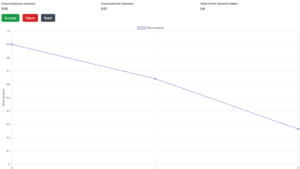Blog/2025-02-03/Intelligence Estimation
Armand Domalewski @ArmandDoma the weird thing is Elon is just like randomly ripping the wires out at USAID when he could hand Trump a list of programs to cut and the GOP could send a bill to his desk to cut them in a few days
Feb 2, 2025[1]
Roshan George @arjie Replying to @ArmandDoma
There's a lot he's done in his life that I think makes no sense and yet it has worked out for him each time. In some sense, if I haven't succeeded at my objectives as well as he has at his, I must ask myself if the methods I'd choose are as effective as I think they are.
Feb 3, 2025[2]
One of the most common things on the Internet is that people are always talking about how more successful people are stupid. They often make the Third Bear Claim that those more successful than them are stupider but more ruthless, and elsewhere make the claim that those less successful than them are stupider and less adaptive, leaving themselves at the top of this parabolic vertex of intelligence.
Other times, people explain how some more successful person could easily accomplish something by choosing to do the actions that they, the less successful, would choose. In theory, this is sound: just because someone is better at one thing doesn't mean they're better at all things. And it is, indeed, true that some people are more successful than others simply because they're willing to go farther or be more ruthless than others.
But the Internet presents a vast array of people who are continuously convinced about how foolish those more successful than them are. The sheer volume of intelligent yet unsuccessful people is staggering. They come in all sorts: formerly gifted children, artists, writers, line cooks unfairly placed there by fate.
Meanwhile, the incorrigibly stupid seem to go through life pleasantly. They go into professions that pay them a lot through pure good fortune. They make choices on how to spend their money that baffle the smart and yet reap rewards from these. They sometimes come from foreign lands with very little and through sheer luck become wealthy.
The more successful they become, the more apparent it is that they're lucky. With each additional mountain they summit, they make even stupider decisions - eschewing the well-known path established for success by experts. And yet they succeed again!

Now, suppose we believed our original estimates of their skill and then at each decision they make where we think they're making a bad decision we make a note and see if it works out for them. We then use this in a crude model where we judge their next poor decision and see whether we are actually a good judge of poor decisions or not. We'll find that as we update our belief in our ability to detect a poor decision it doesn't take that many wrong decisions before we must conclude that we're not good at detecting poor decisions.
Visualization for ▼ estimate-intelligence
A Tweet I once read described this phenomenon roughly as
Less intelligent people perceive more intelligent people as incredibly lucky. They always make inscrutably stupid decisions, unjustified by visible information, and somehow fate rewards them for this.
— Unknown, Lost Work
There was more to it and it was written better than that, but for the most part that was the idea. And based on what one can see on the Internet, it's not far off. Particularly, the allegations that one sees leveled at Elon Musk are that he's doing things that are going to ruin his companies, and that he is stupid and can't see many obvious things because he is surrounded by yes men.
It's not outlandish to believe this ad hoc. It doesn't take a genius to go to Vegas, bet it all on Red, and then make out like a bandit. Sometimes people are lucky doing stupid things. But the more times someone is getting lucky doing a stupid thing, the more likely it becomes that they're not the bad decision maker but that you're unable to see why their decisions are good. And in fact, that threshold arrives really fast.
If you're almost certain that they're idiots, but the chance of success is low if they're making the right decision and even lower if they make the wrong decision, you'll find that it only takes a couple of wins to make it more likely that you're more likely to be wrong about the decision than they are.
And so, if you think someone should "just do X instead of the Y they are doing" but you haven't succeeded at your task and they have succeeded at all the tasks that they have approached with strategies that you disapprove of, it may be worth asking oneself if it is they who are the bad decision maker or oneself.
Notes[edit]
- ↑ Armand Domalewski [@ArmandDoma] (Feb 2, 2025). "the weird thing is Elon is just like randomly ripping the wires out at USAID when he could hand Trump a list of programs to cut and the GOP could send a bill to his desk to cut them in a few days" (Tweet) – via Twitter.
- ↑ Roshan George [@arjie] (Feb 3, 2025). "There's a lot he's done in his life that I think makes no sense and yet it has worked out for him each time. In some sense, if I haven't succeeded at my objectives as well as he has at his, I must ask myself if the methods I'd choose are as effective as I think they are" (Tweet) – via Twitter.
